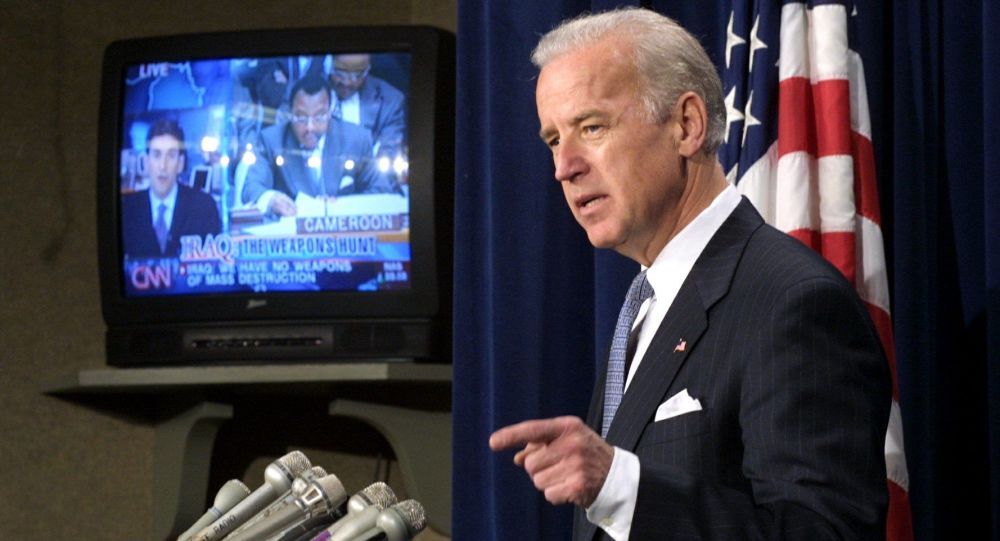Pir Mohammad Mollazehi in an interview with the website of the Strategic Council on Foreign Relations, commenting on the issue that what will be the direction of negotiations with the Taliban after Joe Biden takes office as President of the United States, said: It should be noted that on foreign policy issues such as the Taliban, the US President does not make decisions alone, rather he is only one of the decision-making bodies.
He added: It is the set of the US sovereignty that determines what policy to pursue on important foreign policy issues.
Saying that the same is true for Afghanistan, Mollazehi noted: With Biden in power, the American strategy for Afghanistan will not change, but perhaps the current administration’s approach towards the Taliban and Afghanistan is different from that of Donald Trump’s administration.
The expert on the subcontinental affairs further remarked: So now Biden’s team is considering a revision of the agreement signed during Trump with the Taliban.
He stressed that if this fact is properly understood, it can be easier to understand how the United States thinks about peace in Afghanistan.
The expert continued by saying: Joe Biden is serious about this issue that the Taliban should not be in a dominant position in Afghanistan, that is to say if the Taliban make a mistake at the present juncture, they may get into trouble.
Referring to the Trump’s plans for the Taliban, he said: Given this, it can be concluded that Trump had reached an agreement with the Taliban so that the Taliban could come to power in Afghanistan and revive their Islamic Emirate as much as possible.
Mollazehi added: In other words, Trump’s United States wanted to renew the power of the Taliban and, as much as possible, the Islamic Emirate but to direct the radical Islamic movement formed there towards US rivals such as China and Iran.
The expert on subcontinental affairs further remarked that it is possible that Biden and his group may not think this way, adding: The Democrats are likely to move in the direction of some kind of interaction on the international arena, especially with Russia, China and Iran, and distance themselves from Trump’s approach.
According to Mollazehi, of course, perhaps Biden’s administration cannot achieve its targets as it wishes.
As for the different between the outlook of Trump and Biden towards the issue of Afghanistan, he commented: The current Democratic administration does not want the Taliban take full power in Afghanistan. Although they may adjust their policies in the future, they currently believe that the Taliban can only seize one part of the power and that power should be distributed fairly among the rest of the ethnic and religious groups.
Emphasizing that the Taliban have disagreed with the United States over the same view of the Democrats, Mollazehi continued: That is why we see that the Taliban delegation has recently traveled to Iran, China, Russia and Pakistan; in fact, they are worried that their agreement with the United States will not materialize and, in other words, that agreement will be adjusted to the detriment of the Taliban and in favor of the Kabul government.
The expert added: Under such circumstances, the Taliban will try to gain a majority in power, but in the end it seems that Joe Biden has the means to force the Taliban to adjust its policies.
He said: One of these possibilities is the tools of human rights, and the United States can use this issue against Saudi Arabia and Pakistan, which are the main supporters of the Taliban; in other words, the White House has put pressure on those governments to reduce their support for the Taliban.
Mollazehi said that the Taliban are vulnerable, adding: If there is no foreign facilities and aid, they will not be able to continue their path.
The expert explained that by using this tool, Biden can force the Taliban to pursue a more moderate policy in relation to other groups, but this policy will not be easy, because the Taliban are very ideological and adhere to the Deobandi School. Therefore, it does not recognize any other school intellectually. The Taliban are also monopolistic and have a very ethnic outlook. Therefore, they only recognize the Pashtuns.
In conclusion, he stressed that if the United States wants peace and stability be established in Afghanistan, it must pursue its policies in such a way that the Taliban agree to a partnership in power and do not seek a monopoly of power.










0 Comments